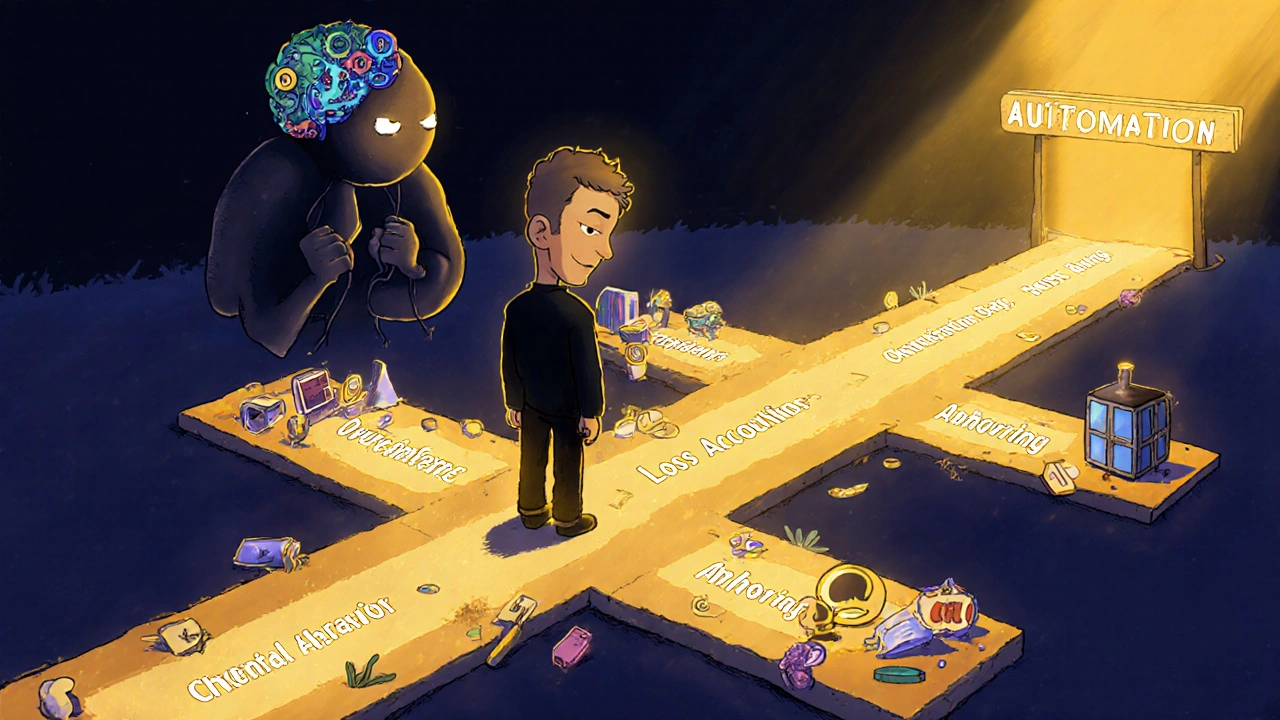Overconfidence Bias: Why You Think You Know More Than You Do (And How It Costs You)
When you buy a stock because you just know it’s going up—or sell because you feel the market’s about to crash—you’re not making a decision based on data. You’re falling for overconfidence bias, a cognitive bias where people overestimate their knowledge, skills, or ability to predict outcomes. Also known as illusion of control, it’s one of the quiet killers of investment returns. It doesn’t matter if you’ve read ten books on ETFs or track crypto prices daily. If you’re convinced you can time the market better than professionals with billions in data, you’re already wrong.
This isn’t just about stocks. overconfidence bias, a cognitive bias where people overestimate their knowledge, skills, or ability to predict outcomes. Also known as illusion of control, it’s one of the quiet killers of investment returns. It shows up when you ignore diversification because you "know" tech stocks will keep rising. It’s why you hold a losing stock too long, thinking you’ll break even if you just wait. It’s behind the decision to trade daily instead of sticking to a simple index fund strategy. And it’s why so many people think they’re beating the market—when they’re actually just getting lucky. behavioral finance, the study of how psychological factors influence financial decisions. Also known as psychology of investing, it has proven over and over that human judgment is flawed—especially when money’s involved. Studies from the University of California show that overconfident traders trade 45% more than others—and earn 2.65% less annually because of it.
What makes overconfidence bias so dangerous is that it feels good. You feel smart. In control. Like you’ve cracked the code. But the market doesn’t care how confident you are. It only responds to facts, probabilities, and time. That’s why the smartest investors don’t try to outguess the market—they build systems that work even when they’re wrong. They use checklists. They set stop-losses. They rebalance automatically. They accept that they don’t know what’s coming next. And they let rules, not gut feelings, drive their choices.
Below, you’ll find real examples from investors who learned the hard way—how overconfidence led to losses, how they fixed it, and what tools and strategies actually work when your brain is working against you. No fluff. No theory. Just what helps you stop guessing and start growing your wealth.
Behavioral Finance Biases: Common Money Mistakes and How to Fix Them
Learn how common psychological biases like loss aversion, overconfidence, and herd behavior lead to costly money mistakes - and how to fix them with simple, proven strategies.
View More